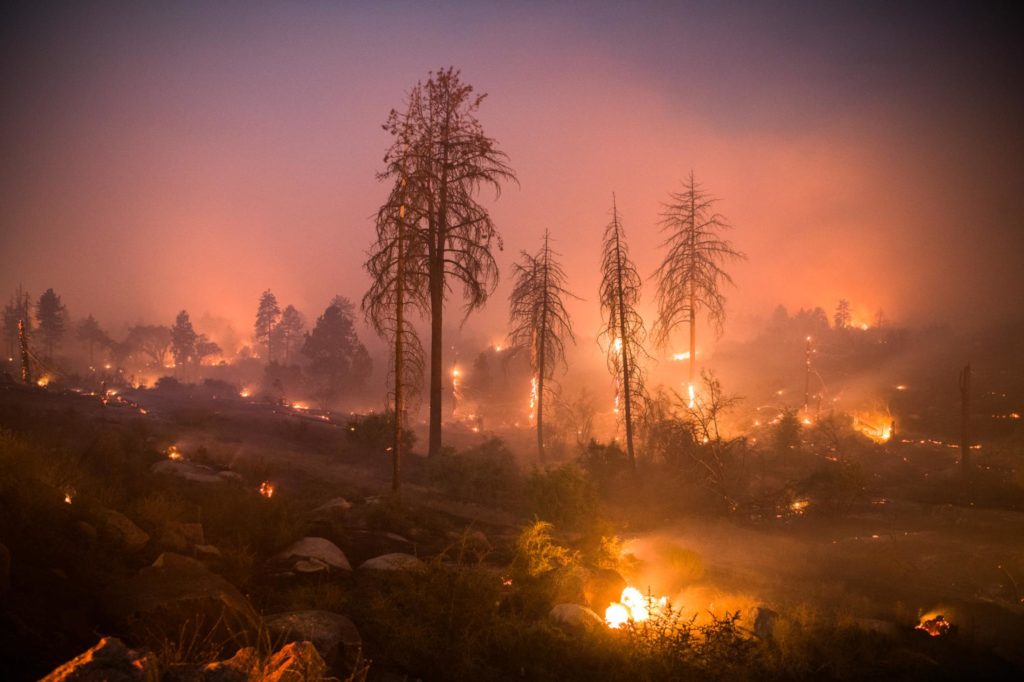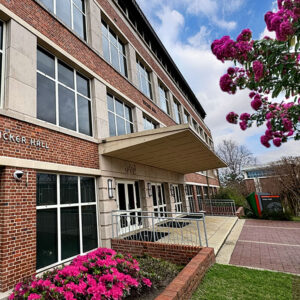Enviromental Justice | September 29th, 2020
Climate Change is Gravely Absent From the Political Agenda
By: Kailyn Rhone

Amidst historic wildfires, floodings and tropical storms raging nationwide, political voices seemingly aren’t raging the same regarding the fight against climate change and saving the planet for future generations. As the nation approaches election season during a global pandemic, climate change has been more crucial than ever as extreme weather events have affected all parts of America.
And the grass isn’t greener on the West coast of America as recent wildfires have been occurring uncontrollably in the most air-polluted state, California — a competitive swing state for elections. With numerous occurrences happening simultaneously, it’s questionable why these extreme life-threatening events aren’t ordinarily the main topic within the political world.
“Some politicians do shy away from climate change,” says Kesley Grant, a conservative fellow at Citizens’ Climate Lobby Organization. “We know the issue of climate change is often dominated by the Democratic Party, as opposed to the Republican Party. What’s so interesting is that the Republican Party actually used to be the party of environmentalism. And right now, climate change is seen as an issue of the Democratic Party, and the Republican Party, to an extent, does not see climate change as a winning political strategy for them.”
In further detail, a political party usually does not attempt to advocate the same subject if it’s seen as one party’s issue. However, in past politics, both political parties actively supported the climate. 26th republican President Theodore Roosevelt created the U.S. Forestry Service which established five national parks and 39th democratic President Jimmy Carter embraced renewable energy by installing solar panels atop of the White House in 1979, an initiative removed seven years later by the Reagan administration.
Today, the roles are professedly reversed as Republicans like Florida Senator Marco Rubio and President Donald Trump — running for presidential re-election — don’t believe in climate change. Former Democratic President Barack Obama was known as the “climate change” president, putting forth a well-defined environmental plan of action. Numerous United States residents believe President Trump is deteriorating Obama’s environmental plans with the incumbent administration pursuing a pro-fossil agenda and ceasing participation in the 2015 Paris Agreement on climate change mitigation.
The Trump administration tried to bury a federally-mandated climate change study by releasing it the Friday after Thanksgiving. Here’s what they didn’t want you to hear:
— Hillary Clinton (@HillaryClinton) November 26, 2018
The copious regional wildfires and flooding aren’t adequate to convince the federal level of the reality of climate change. The world’s leading scientists acknowledged that climate change is human-induced and warned that natural fluctuations regarding the atmosphere are intensified by human activity.
Although the West Coast has recently been more on the political agenda and in the public eye, there are a plethora of stories across the nation that haven’t hit local or national news and media.
“I grew up in Tampa, and in Tampa, there is a historically black neighborhood called Seminole Heights. Over the past ten years developers in this neighborhood have gentrified portions of this neighborhood,” says Jenna Stevens, state director of Environment Florida. “This has meant the destruction of traditional communities but also natural ecosystems that helped to reduce flooding from the Hillsborough River during rain events.”
Stevens added: “Since this development has occurred, coupled with increased storm activity because of climate change we are seeing more frequent flooding of the remaining traditional communities in Seminole Heights. Additionally, inadequate funding for stormwater infrastructure in Seminole Heights has only compounded this problem.”
Most Floridians or other states in America haven’t discovered this climate-threatening story from local political leaders or news stations. Other areas in Florida like Pensacola and Little Havana in Miami have also been heavily affected by flooding due to climate change. All these extreme weather events have caused people to relocate.
“Something we’re going to have to start planning for, as in seriously planning, is climate migration. Florida processed 300,000 Puerto Rican climate refugees after Hurricane Maria,” says Brian Lee, Tallahassee’s conservation District 4 supervisor. “Most of Mexico Beach was wiped out by Hurricane Michael and Hurricane Sally just did severe damage to the Panhandle too, flooding. Parts of South Florida experience sunny-day flooding because of sea-level rise. People are being displaced by storms and sea-level rise and they have to go somewhere.”
Minorities are the vast majority of those affected by these extreme weather events financially and culturally. People of color are gravely concerned about climate change as minorities seek political leadership to recognize their communities are part of this nation as well.
“We [minorities] are hit the hardest by climate disasters because most chemical plants and highly polluted areas are embedded in neighborhoods where the majority of residents are people of color,” says Princella Talley, diversity outreach coordinator of CCL. “Being aware of what is happening nationally to address climate change is critical because not addressing climate change puts the health of our families even more at stake due to pollution that contributes to unhealthy air, water, and soil. We have to apply the pressure on political leaders to acknowledge the harm being caused and work with the most impacted communities to create more safe and fair systems, or the issues will continue and get worse.”
With a new election season on the horizon, the nation is vigorously seeking genuine, prospective candidates concerned about assertive change for the environment that accommodate minorities and their communities.






